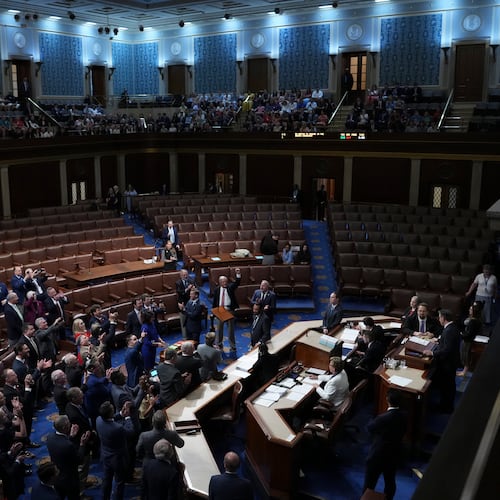In the past few weeks, we’ve heard the excruciating sound of public school systems statewide squeezing the guts out of their budgets to meet state cuts and stay functional.
Nine out of 10 Georgia students attend public school, so the anguish and impact will be deep and wide.
In the past few weeks, we also have heard where millions of dollars from the state have gone: Since mid-2008, $143 million in state taxes that were headed into the state treasury have been diverted into a large but little-known and easily abused program that provides scholarships for Georgia students to attend private schools.
In 2008, after tuition voucher proposals had failed again, the Legislature passed and Gov. Sonny Perdue signed a back-door method guided by a legislator who later bragged that he misled his colleagues. The law allows Georgia individuals and corporations to divert some of their state taxes away from the state treasury and into nonprofit student scholarship organizations. These SSOs use the tax money to pay scholarships for students to attend private schools.
The Georgia tax credit scholarship program is more than a massive transfer of funds from public to private education — which, at an automatic $50 million per year increase, will reach $200 million next year, then $250 million, etc.
It also reveals our state leaders’ spending priorities: In a mere four years, the tax credit program for private school scholarships has become the state’s largest — larger than tax credits for creating jobs, luring income-generating filmmaking or promoting clean energy.
Is this the ride we signed up for? Did we really vote for the Legislature and governor to begin squeezing to death our public schools and financing an unaccountable private school system?
When the SSO bill was debated, its primary sponsors, state Rep. David Casas, R-Lilburn, and state Rep. Earl Ehrhart, R-Powder Springs, were adamant that its purpose was to help low-income students in struggling public schools transfer into better private schools.
We now know what happened: A Southern Education Foundation report in 2011 that failed to get much attention from local media caught the eye of an investigative reporter at The New York Times.
The Times reported on May 21 that Casas had boasted at a meeting of parents that he had deliberately corrupted the law’s wording to allow parents of students already in private schools to “enroll” their children in a public school only long enough to claim a scholarship and then never attend a public school, much less a failing one.
In his talk, Casas revealed that his deeper goal is to “open it up to every student ... That’s where we’re going with this.” The video was pulled from YouTube after media exposure.
Given Casas’ swagger about the ruse, it was no surprise that some SSOs and schools have openly advertised that contributing parents and friends of parents may recommend or designate their own schools and the student of their choice to receive a scholarship. Some encouraged parents to designate their own children. All of this is flagrantly against state law and regulations. It is simply private school cheating.
Casas and Ehrhart have responded to past criticism in two ways: Ehrhart typically just brands any critic “an extremist” or “a radical.”
Then, under the guise of improving the SSO program’s transparency, they led lawmakers in 2011 to enact legislation that, again, did the opposite of what they claimed: They created a near-total lockdown of public information on the SSO program —unlike anything else in Georgia state law.
The Legislature passed and Gov. Nathan Deal signed a law that classifies as a state secret almost any information one might seek — even something as simple as the number of scholarships a private school receives — and made it a crime to release it.
Even the routine annual audit, required of all state agencies and programs, is off-limits to the public.
Wonder what they’re hiding?
Some private schools have now distanced themselves from the shady practices and urged legislative reform.
Lawmakers should end or vastly mend this program. But the lesson here for school kids?
When the Legislature embarks on “reform,” watch what they do, not what they say.
Hank Klibanoff, the James M. Cox Jr. Professor of Journalism at Emory, is co-author of “The Race Beat: The Press, the Civil Rights Struggle, and the Awakening of a Nation,” which won the 2007 Pulitzer Prize in history. Steve Suitts is vice president of the Southern Education Foundation.
About the Author
Keep Reading
The Latest
Featured


